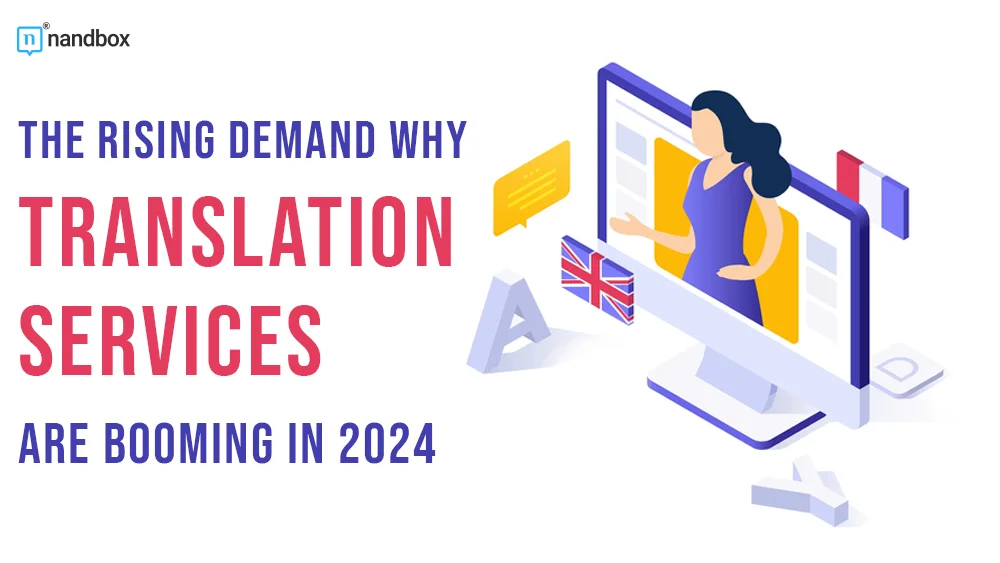Our modern world is fast catching up to be a global village. Therefore, mastering translation and interpretation skills become very vital. In regards to the focus on globalization and businesses going global, the world witnessed a huge requirement for translation services with high value. 2024 can be considered a year that brought a turn in the global market. It faces unprecedented demands for accurate and culturally sensitive translations. The paper explores the background of its exponential adoption and reasons why it is a necessity for organizations that want to be successful in the current world.
The Globalization of Business
Expansion into New Markets
Globalization has opened up new opportunities for businesses to enter international markets. However, with these opportunities come challenges, particularly in communication. Companies that aim to establish a presence in foreign markets must navigate the complexities of language and cultural differences. This is where translation services come into play, enabling businesses to effectively communicate with diverse audiences.
For instance, in Quebec, a region known for its linguistic diversity, businesses rely heavily on professional translation services. They use them to engage with both French and English-speaking customers. Quebec translation services ensure that businesses can tailor their content to resonate with local audiences, thereby enhancing their brand’s credibility and appeal. Whether it’s translating marketing materials, product descriptions, or legal documents, the ability to accurately convey a message in a different language can make or break a company’s success in a new market.
E-commerce and Digital Transformation
With the rise of e-commerce and continued development in the digital sphere, the need for translation services continues unabated. The importance of online buying is coming into play in various countries. Many companies have thus focused their attention on reaching worldwide customers. For this easily achievable task, they have to provide multi-lingual websites and customer care to reach linguistic diversity among their consumers.
Nevertheless, localization services remain critical in translating websites, mobile applications, and marketing content to various regions. This may be considered as localization and not just translation. As it takes into consideration the cultural context of the consumers. In the process, professional translation services allow e-commerce to provide a consumer-friendly shopping experience across the globe. Therefore, improving sales for their businesses and customer loyalty.
The Impact of Technology on Translation Services
Advancements in Machine Translation
Technology has hugely transformed the translation industry, with huge advancements in machine translation. Platforms like MachineTranslation.com harness AI and machine learning to make translation quicker and more accurate, helping companies manage large volumes of content in multiple languages. Supporting more than 240 languages and offering an optional human review feature, this tool ensures a seamless translation experience tailored to diverse needs. These advancements have proven to be a boon for translation service providers, enabling much shorter turnarounds without sacrificing quality.
This does not mean, however, that machine translations replace human translators. The best translation service offers efficiency through AI with the ability to provide cultural and linguistic flair that only a human can create. This hybrid model ensures translations are not only accurate but resonate with the intended audience, all while maintaining integrity to the original message.
The Rise of Multilingual Content
In these digital times, companies are creating more content than ever. Starting from social media posts down to customer support interactions and including the need to translate and localize videos, the demand for multilingual content has grown exponentially. Translation services go hand in glove with businesses that feel this need to maintain a coherent brand voice across languages and platforms.
For example, global companies create social media customer engagement across multiple regions. This requires them to translate their content into several languages while keeping the tone and intent of the original message intact. Professional translation services ensure that companies are communicating effectively with their international audiences, leading to improved customer relationships and loyalty to brands.
Industries Driving the Demand for Translation Services
Healthcare and Medical Research
One of the major industries driving the growing demand for translation services is health. Medical research is conducted worldwide, and the need for such information to be shared across borders calls for translation. Translation services are in high demand regarding various documents, including those on medical journals, clinical trial reports, and patient data. The stakes are just so very high. Any errors in translation may lead to misunderstandings, misdiagnoses, or even legal repercussions.
Translation services play another very important role in ensuring all regulations set by other countries are followed. In situations like this, pharmaceutical companies engaged in many countries may be bound by regulatory requirements to insert product information and instructions in the native language. Partnering with a medical translation service provider is essential for healthcare organizations to ensure their communications are clear, accurate, and fully compliant with legal requirements.
Legal and Financial Sectors
The demand for translation services is equally vital in legal and financial departments. Legal documents include contracts, patents, and court filing materials that need to have exactly worded translations to leave no room for ambiguities or misinterpretations. Financial reports, audits, and other financial documents require translations that are accurate to ensure transparency and compliance with international norms.
As businesses continue to grow more globally, the need for accurate translation for these industries will also further increase. This demands professional translators who can handle legal and financial terminology. This is to provide the company with competent translations of documents while retaining their meaning across languages.
Education and E-learning
This demand was influenced by the rise of online education and e-learning platforms as well. Educational institutions and companies have to make their courses and materials available in various languages to expand globally. Translation services are a must for educational content. It needs to be adapted to different linguistic and cultural contexts, so learners from all over the world can access and benefit from these resources.
Be it textbook translation, online course translation, or translation of instructional videos, professional translation services help educational providers increase their reach and impact. In this way, they can reach a more diverse pool of students while contributing toward the spread of global knowledge.
The Competitive Edge of Professional Translation Services
Quality and Accuracy
One of the main reasons businesses turn to professional translation services is the assurance of quality and accuracy. While machine translation tools can provide quick translations, they often lack the nuance and cultural understanding required for effective communication. Professional translators bring a deep understanding of both the source and target languages, ensuring that the final product is accurate and culturally relevant.
In industries where precision is paramount, such as healthcare, legal, and finance, the importance of quality translation cannot be overstated. By investing in professional translation services, businesses can avoid costly mistakes and maintain their reputation in the global market.
Cultural Sensitivity and Localization
Another critical advantage of professional translation services is their ability to provide cultural sensitivity and localization. Localization goes beyond translating words; it involves adapting content to fit the cultural norms and expectations of the target audience. This is particularly important in marketing, where a culturally insensitive message can damage a brand’s reputation.
Translation services that offer localization ensure that the content resonates with the target audience, increasing the likelihood of success in a new market. By considering cultural nuances, businesses can create a more authentic and engaging experience for their customers.
The Future of Translation Services
Continued Growth and Innovation
The demand for translation services is expected to continue growing as businesses increasingly operate on a global scale. With ongoing advancements in technology, the translation industry will likely see further innovations that enhance the quality and efficiency of services. However, the need for human expertise will remain critical, as cultural and linguistic nuances cannot be fully captured by machines.
The Role of Translation Services in Shaping Global Communication
As we move further into the digital age, translation services will play an even more vital role in bridging language barriers and facilitating global communication. Whether for business, education, healthcare, or legal purposes, translation services are essential for connecting people and ideas across borders. In 2024 and beyond, these services will continue to be a cornerstone of successful global strategies.
Conclusion
In today’s globalized world, translation services are no longer a luxury but a necessity. From helping businesses expand into new markets to ensuring clear communication in critical industries, the demand for high-quality translation services is only set to increase. As businesses navigate the complexities of a global market, partnering with professional translation services will be key to their success.





